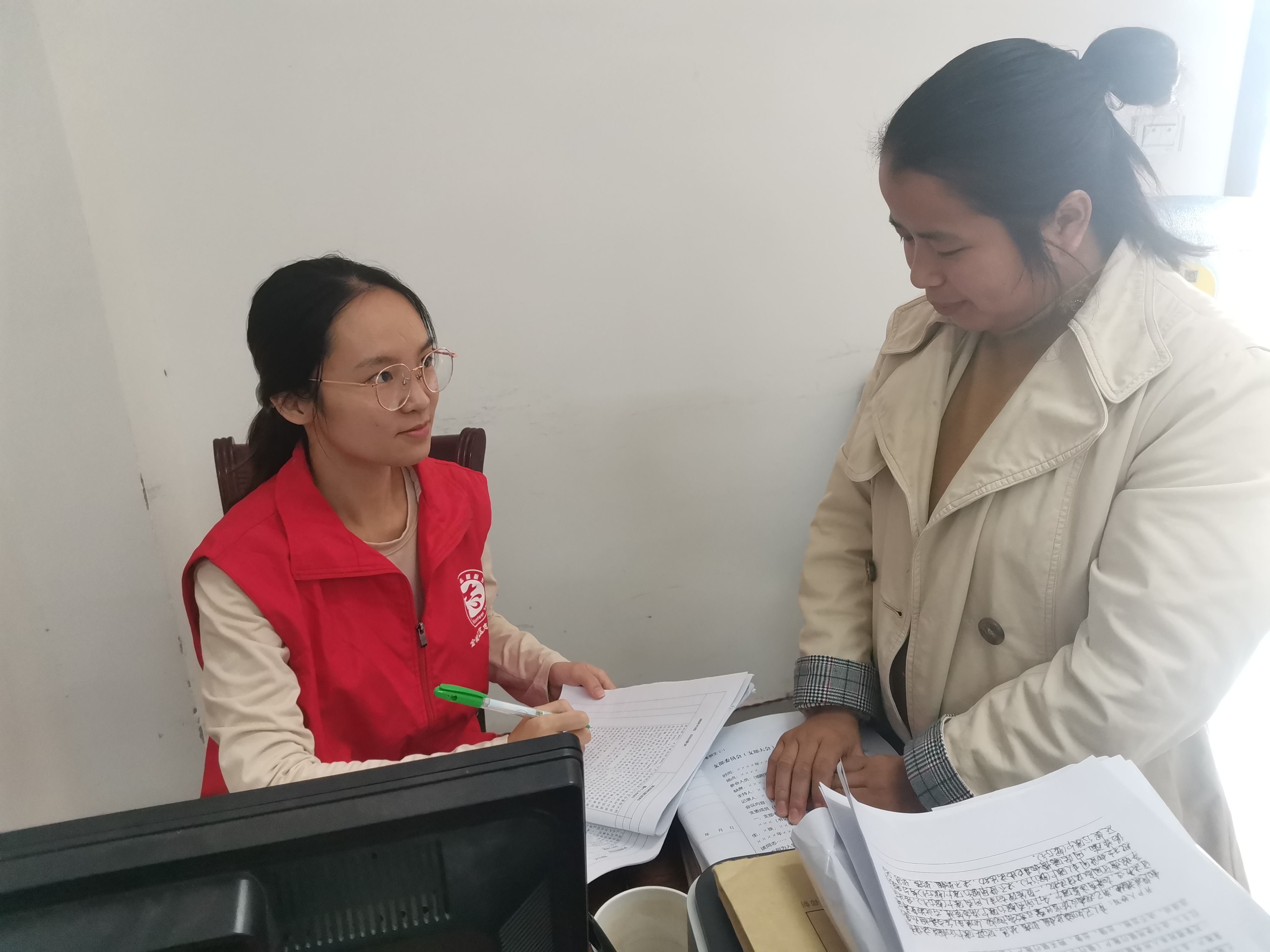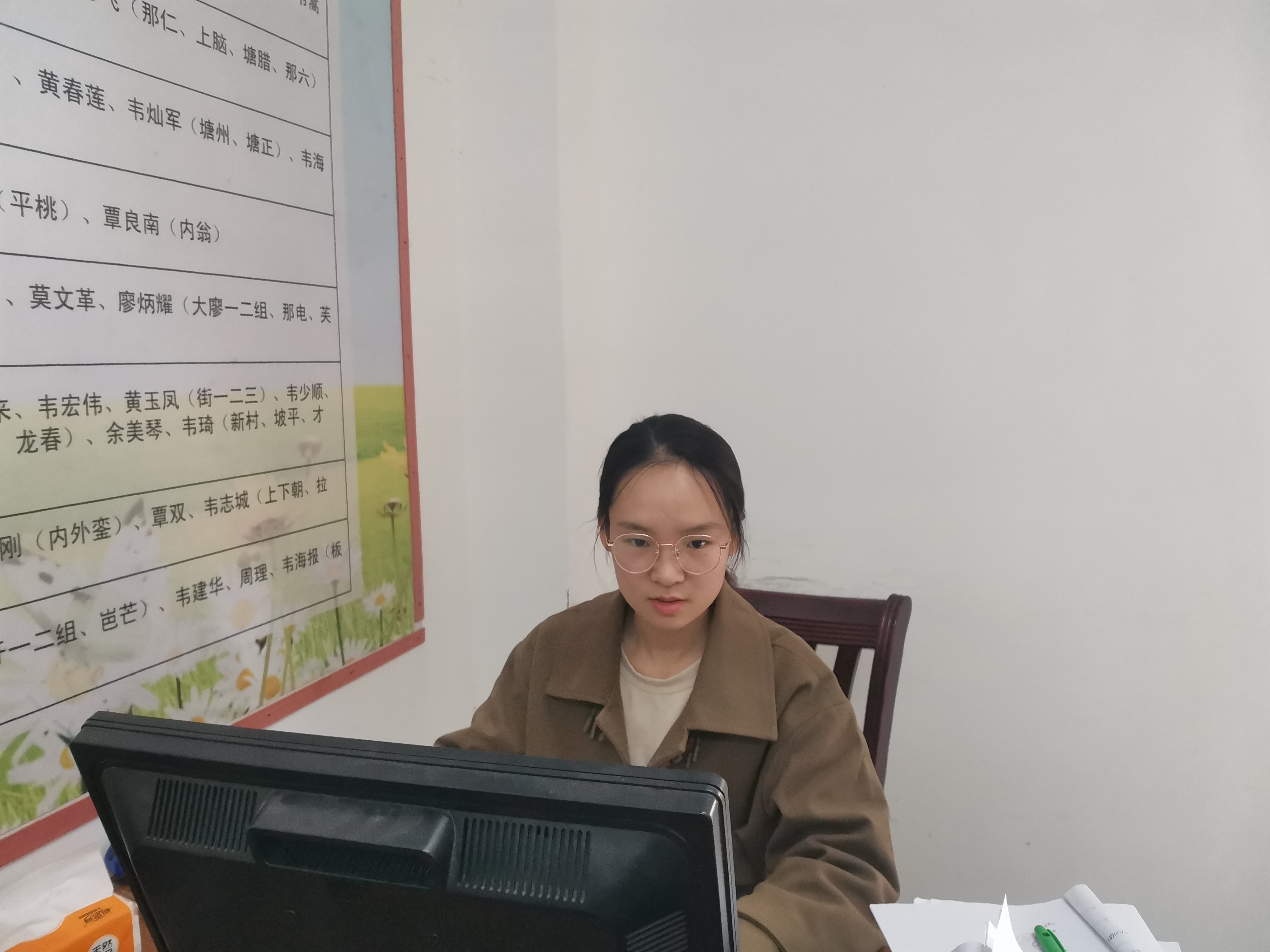Spring Bud Blooms | Rural Cadre Passes on Love, Helps Residents
Editor's Note
With the care of the Communist Party of China (CPC) Central Committee, and under the leadership of the All-China Women's Federation, the China Children and Teenagers' Fund (CCTF) launched the Spring Bud Project in 1989, to help impoverished girls return to school, and to promote girls' education in disadvantaged areas.
Since the 18th CPC National Congress, in 2012, with the attention and concern of the CPC Central Committee with Comrade Xi Jinping at the core, and with the strong support of Peng Liyuan, special envoy of the Spring Bud Project for promoting girls' education, the project has conducted various activities to care for and support girls, and it has focused on girls' education, safety and health. During the past decade, the project has supported 1.76 million girls, and it has provided one-on-one companionship services and personalized psychological counseling to 133,400 girls. After they receive support from the project, the Spring Bud girls never forget to give back to society. With love and various actions, the girls have demonstrated the Spring Bud spirit of "unremitting self-improvement, striving for excellence, developing stronger virtues and pursuing better lives."
Today, we introduce a new section, Spring Bud Blooms, to share stories about Spring Bud girls who have grown up and become contributing members of society, and to encourage society to care for the development of girls. Li Wei is one of them.
 |
| Li Wei (left) at work |
Li Wei is assistant to the director of the villagers' committee of Sanjing, a village in Jinchengjiang District, Hechi, a city in South China's Guangxi Zhuang Autonomous Region. She says she was lucky to have been a beneficiary of the Spring Bud Project. "It is the project that has helped me get to where I am today. It gives me infinite love and warmth, and I hope to pass the love on to help more people in need, and to give back to society," Li says.
Li in 1997 was born into an ordinary family in Jinchengjiang. She lived with her father and grandmother. The family lost its only source of income when Li's father died, of a cerebral hemorrhage, during the last year of her primary school studies.
It was not easy for Li's uncle to support her, or her education, as his economic situation was limited. It was a heavy burden for Li to cover her living expenses, and other school-related costs, despite the nine-year compulsory education system having already waived tuition fees. "I was actually ready to drop out of school at that time," Li recalls.
Fortunately, cadres with the local women's federation visited her one day in 2012. "They gave me subsidies and encouraged me to keep studying hard. I learned the subsidies came from the Spring Bud Project," Li says.
 |
| Li Wei at work |
She appreciated the assistance she received from the project, and she studied hard at school during the following years.
Li's grandmother passed away while she was in high school. Li turned her sorrow into strength, and she studied even harder. Thanks to her hard work and excellent performance, she was admitted to Guangxi Minzu University, in Nanning, capital of Guangxi.
"During the first two years of university, I was receiving subsidies from the project. I chose to stop receiving help from the project in the third year, because the money given by my uncle and my earnings from work-study activities and part-time jobs could basically support my daily living expenses. I think I have the ability to stand on my own feet, and I hope the project will reach more girls in need of great help," Li says.
Upon graduation, Li passed the recruitment examination and was offered the job of assistant to the director of the Sanjing villagers' committee.
Sanjing had been striving for years to become a model village of ethnic unity. As the cadre placed in charge of the relevant work, Li often worked late in the office.
 |
| Li Wei and children draw pictures together. |
Through the concerted efforts of Li, her colleagues and residents, the village was selected as both a municipal- and provincial-level model village of ethnic unity in 2021 and 2022, respectively. "Such achievements mean a lot to our village, and it is also a recognition of my work," Li says.
In March 2022, the general Party branch of Sanjing was rated as a five-star rural grassroots Party organization in Guangxi. "We have established a women's home and children's home in our village, where we carry out cultural and entertainment activities for women and children, and where we organize lectures on the protection of the lawful rights of women and children," Li says.
Looking back on the help she has received, Li hopes to use her own strength to pass on that love. "When we visit villagers, we find that some villagers are not familiar with preferential policies or projects, so we introduce the policies and projects to them, and help them apply for relevant support to improve their living conditions," Li says.
"I hope I can help disadvantaged families gain access to support from projects like Spring Bud Project, and help children grow up healthily and realize their dreams," she adds.
Li says she will adhere to her original aspiration, do her job well and provide assistance to more people in need.
Photos Supplied by CCTF
(Women of China English Monthly January 2023 issue)
Please understand that womenofchina.cn,a non-profit, information-communication website, cannot reach every writer before using articles and images. For copyright issues, please contact us by emailing: website@womenofchina.cn. The articles published and opinions expressed on this website represent the opinions of writers and are not necessarily shared by womenofchina.cn.








.jpg)

 WeChat
WeChat Weibo
Weibo 京公网安备 11010102004314号
京公网安备 11010102004314号